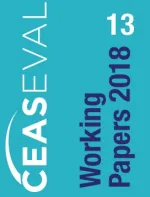Politicization and media analysis on refugees relocation: The case of Italy

CEASEVAL Working papers No.13
In this report we discuss the politicization of asylum in the Italian public debate. We strat from De Wilde (2016) suggestion to focus on three components who analytically define politicisation: 1) an increase in salience, resulting from societal actors’ increasing attention to a specific issue, 2) a diversity of opinions on a specific societal topic, leading to the polarisation of opinions, and also 3) an expansion of actors engaging in the process of opinion formation. Specifically, the analysis is referred to two episodes of contention: the EU refugee relocation plan debated in 2015 and the internal relocation, discussed in 2014 and in 2015. For this purpose, we have analysed opinion polls, traditional media contents and parliamentary debates specifically concerned the topic of responsibility-sharing. For the analysis of both the news and the parliamentary debates we have focused on the following periods of time: a) 1st May-31st December 2015, and b) 1st April - 31st December 2014. The media analysis has been limited to the most widespread Italian newspaper, Corriere della Sera. As for the opinion polls, we have focused on Eurobarometer pools carried out from 2014 to 2017.
Our analysis shows that the politicization of the issues analyzed do not follow the same trends in the mainstream media and in the Parliament: while politicization is at rather high level in the former, it is at a very low level in the latter. Following our data, we argue that to better understand the politicization process the three components suggested by De Wilde need to be intertwined with journalistic mechanisms of production (the media logic) as well as the political entrepreneurs’ activities at the local level and their ability to intercept the media logic.
Keywords: refugees, politicization, salience, polarisation, political communication, media, news-making, responsibility